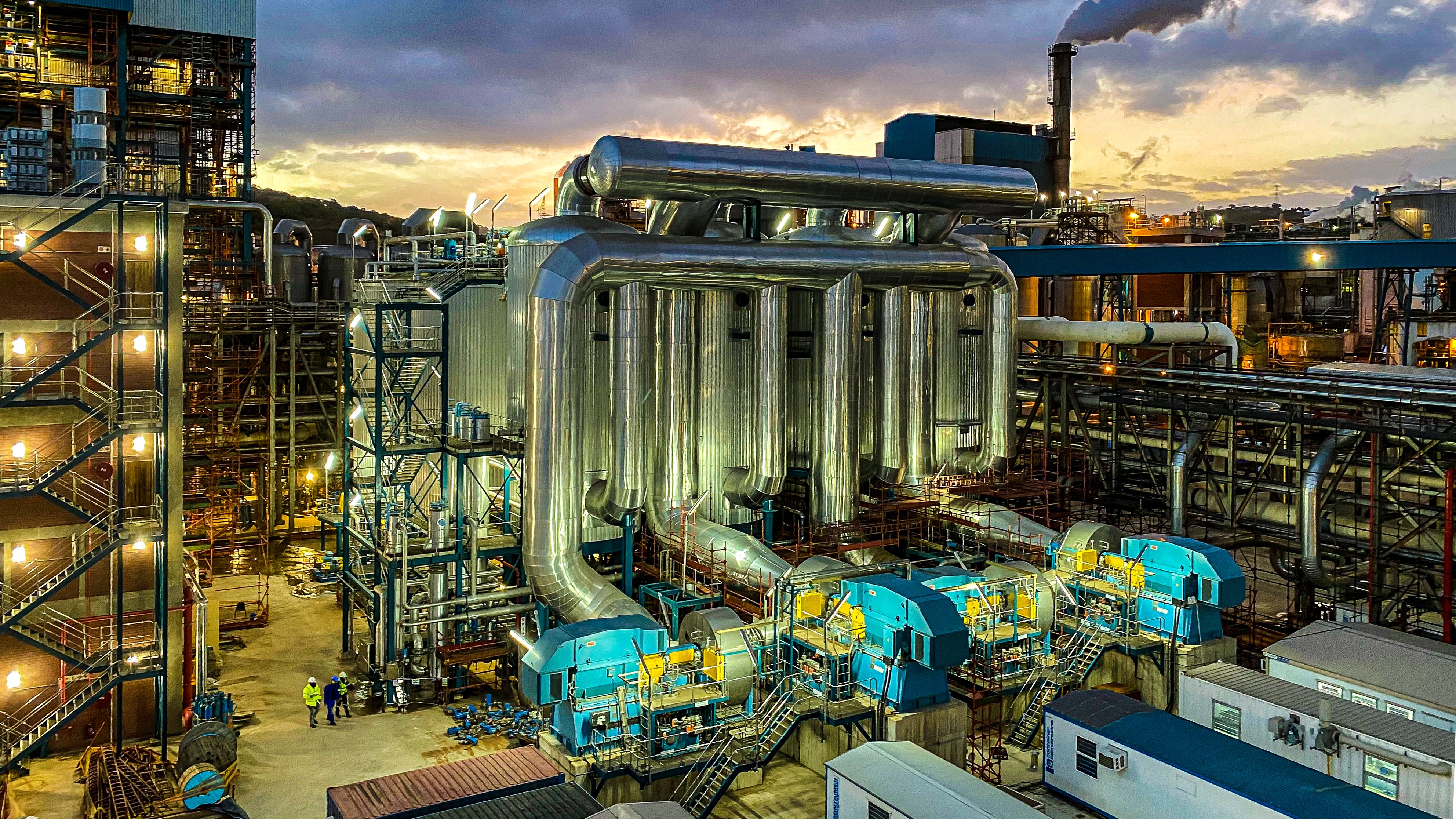Sulfite liquor
Home
- / Sulphite liquor
Efficient evaporation technologies in the pulp industry using the sulfite process
The sulfite pulp industry faces challenges in exploiting its potential in the best possible way, given the highly energy-intensive nature of the manufacturing process. However, modern evaporation technology, the recovery of valuable products from the spent liquor, and an intelligent energy utilization concept can offer a significant competitive advantage.
State-of-the-art evaporation technology
When operating evaporation plants using the sulfite process, deposits form on both sides of the heat exchanger, which permanently affect the operation of the plant. The cleanability of the evaporator is therefore extremely important.
State-of-the-art in sulfite processes today are plate falling film evaporators. Their unique plate bundle production method minimizes the risk of fouling and corrosion, ensuring very long operating times. The accessibility of the evaporator allows efficient and uncomplicated cleaning, both chemically and mechanically. Plate falling film evaporators operate highly energy-efficiently and can attain evaporation capacities of up to 700 t/h.
Efficient energy utilization
Substantial cost reduction measures are achievable using multiple-effect evaporation plants and mechanical vapor recompression. In addition, for existing single- or multi-stage plants, system retrofitting with vapor recompression offers a high potential for improving energy efficiency if favorable conditions exist.
Furthermore, the specific energy input in pulp production can be significantly reduced through waste heat recovery methods. Therefore, in addition to the internal use of surplus heat, decoupling previously unused low-temperature waste heat into local and district heating networks continues to play an increasingly important role.
Furthermore, the specific energy input in pulp production can be significantly reduced through waste heat recovery methods. Therefore, in addition to the internal use of surplus heat, decoupling previously unused low-temperature waste heat into local and district heating networks continues to play an increasingly important role.
Value products from waste streams
Spent liquor represents a first-rate chemical raw material source that is rarely used today. The liquor contains many valuable organic substances and at least 50 percent of the original wood substance. With further development of the circular economy, there are many possibilities for converting biogenic ingredients from spent liquor into profitable value products such as acetic acid, furfural, xylose, or ethanol.
GIG Karasek, one of the leading central european manufacturers of evaporation plants for the pulp and regenerated fiber industry, offers the best available technologies (BAT) to meet the industry's requirements.





